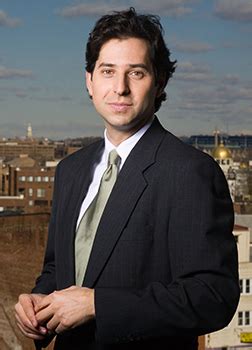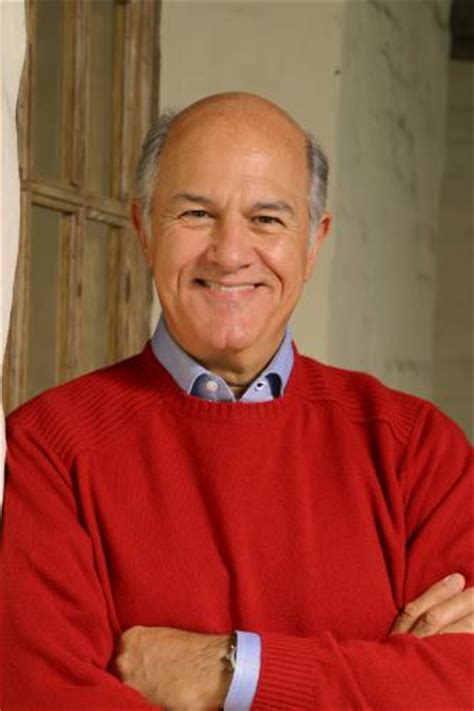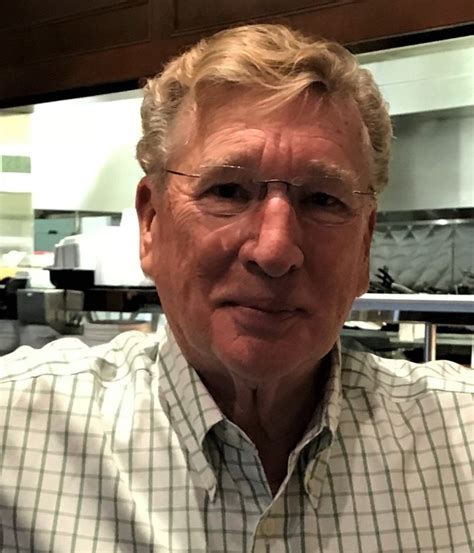A Quote by Stephen Covey
Most people think of leadership as a position and therefore don't see themselves as leaders.
Quote Topics
Related Quotes
When you coach and teach leadership, most people think about them. It's like you're the leader and how do you influence them. Clearly, leaders do take their followers, their flock, their enterprise, their business - whatever - hopefully to a better place. But I think the foundation of what makes really great leaders is they lead themselves, and they're conscious about knowing themselves and coaching and leading themselves in a very profound way. The simplest of us talk to ourselves. The question is, "Do we really lead ourselves?"
Most people think leadership is about being in charge. Most people think leadership is about having all the answers and being the most intelligent person or the most qualified person in the room. The irony is that it is the complete opposite. Leadership is about empowering others to achieve things they did not think possible. Leadership is about pointing in the direction, articulating a vision of the world that does not yet exist. Then asking help from others to insure that vision happens.
I think it's very important to be able to hear from our public leaders in ways that they can't entirely orchestrate, seeing them speak live and unscripted and take questions that they themselves haven't arranged ahead of time. I think this is a way in which citizens who are deciding what they think of their leaders who govern in their name, this is one of the ways in which they can evaluate how they feel about the quality of the leadership.
Authenticity is about imperfection. And authenticity is a very human quality. To be authentic is to be at peace with your imperfections. The great leaders are not the strongest, they are the ones who are honest about their weaknesses. The great leaders are not the smartest; they are the ones who admit how much they don't know. The great leaders can't do everything; they are the ones who look to others to help them. Great leaders don't see themselves as great; they see themselves as human.
Leaders strengthen credibility by demonstrating that they are not in it for themselves, instead they have the interests of the institution, department, or team and its constituents at heart. Being a servant may not be what many leaders had in mind when they chose to take responsibility for the vision and direction of their organization or team - but serving others is the most glorious and rewarding of all leadership tasks.
To my mind, you cannot speak about the need for leadership within our communities without being prepared to take on responsibility yourself. It's not enough to point the finger at those who have let us down and to expect others to come forward and fix our problems. Nor can anyone afford to call themselves a leader unless they truly have the interests of our community at heart. Too many people like to think they are leaders and too many are identified by the media as leaders who are not really leaders at all.
Few things kill likeability as quickly as arrogance. Likable leaders don't act as though they're better than you because they don't think that they're better than you. Rather than being a source of prestige, they see their leadership position as bringing them additional accountability for serving those who follow them.
When leaders claim that God bypasses their followers and speaks directly to them, they greatly diminish all God does through the lives of believers.Leaders who begrudge people the opportunity to seek God themselves and who do not actively teach their people how to hear God's voice have disqualified themselves as spiritual leaders.
The biggest shortage in the world is not oil or food-it's leadership. Why is it such a scarce resource? Because egos get involved. Most people in top positions think they are better than somebody else, think they need something better than somebody else. It's economic assets, it's status, it's all those other things that prevent the people at the top from subordinating themselves totally to the people they lead. It is not socialism. Leaders get paid a lot more than those they lead, they get paid for their knowledge and skill...but they are no better as a person.



































